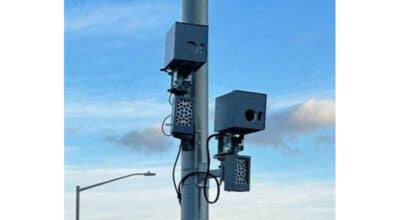Be careful when shopping online
Published 9:35 am Saturday, November 29, 2014
If waiting in long lines on Black Friday didn’t sound like something you wanted to do, then you might have thought to wait until Cyber Monday to do your Christmas shopping.
It successfully rids you of the crowds, but it often can come with other problems, such as phishing, delays and misrepresentation of items you never see until they arrive at your door.
While we at The Tidewater News encourage you to spend your money at the local shops sprinkled throughout Western Tidewater as a way to avoid both the crowds and the online catastrophes, we also know that not every need can be filled that way.
So, if you have decided to ditch the stores in favor of a computer screen this holiday season, the Better Business Bureau has 10 tips to help keep you safe while shopping online.
• Protect your computer. Install a firewall, anti-virus and anti-spyware software. Check for and install the latest updates and run virus scans regularly.
• Check a site’s security settings. If the site is secure, its URL (web address) should start with “https://.” You also may see a picture of a small closed lock in the lower right corner of the screen.
• Shop trustworthy websites. Look for BBB Accredited Business seals on websites and click to confirm that it’s valid. BBB dynamic seals will take you to a site’s BBB Business Review.
• Protect personal information. Read a site’s privacy policy and understand what personal information is being requested and how it will be used. If a site lacks a privacy policy, it could be a red flag that the site could sell your information without your permission.
• Beware of too-good-to-be-true deals. Offers on websites and in unsolicited emails may display free or very low prices on hard-to-find items. There may be hidden costs or your purchase may sign you up for a monthly charge. Look for and read the fine print.
• Beware of phishing. Legitimate businesses do not send e-mails claiming problems with an order, account or a package to lure the buyer into revealing financial information. If you receive such an e-mail, BBB recommends that you pick up the phone and call the contact number on the website where the purchase was made to confirm a problem.
• Pay with a credit card. Under federal law, you can dispute the charges if you don’t receive an item. Shoppers also have dispute rights if there are any unauthorized charges on the card, and many card issuers have zero-liability policies if someone steals and uses your card number.
Check your credit card statement regularly for unauthorized charges. Never pay with pre-paid debit cards or wire money to someone you don’t know.
• Keep documentation of your order. Save a copy of the confirmation page of an order or e-mails confirming the order until you receive the item and are satisfied.
• Obtain a tracking number for shipments. If you need the product before the holidays, find out when the seller intends to ship it and, if possible, how it will be shipped. The tracking number can help you find a lost order.
• Know your rights. Federal law requires that orders made by phone, mail or online be shipped by the date promised or within 30 days if no delivery time was stated. If goods aren’t shipped on time, shoppers can cancel and demand a refund. Consumers also may reject merchandise if it is defective or was misrepresented.
Check a company’s BBB Business Review for free before you make a purchase at BBB.org.




